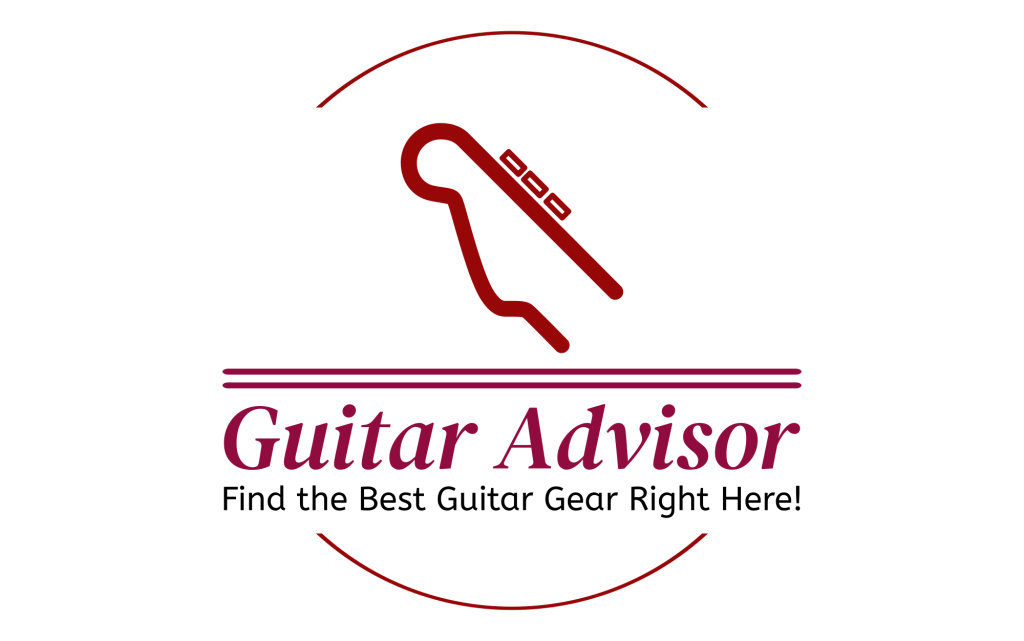What is the best way to learn guitar without a teacher? It’s a common question that both budding musicians and experienced players ask when seeking self-sufficiency in their musical journey. Given the wealth of available resources today—from online tutorials to apps and forums—learning guitar without a formal instructor is not just feasible; it can also be enjoyable and highly rewarding.
However, the absence of a teacher poses its own set of challenges and responsibilities. Unlike guide-led sessions, self-teaching requires a structured and disciplined approach, a readiness to troubleshoot issues independently, and the ability to critically evaluate your own progress.
Establishing Your Goals
Why Are Goals Important?
Setting clear, achievable goals is a foundational step in your journey to learn guitar. Goals provide direction and motivation, making it easier to measure progress and identify areas that need improvement. This structured approach can help maintain your enthusiasm and focus.
Short-Term vs. Long-Term Goals
Divide your learning objectives into short-term and long-term goals. Short-term goals could include mastering basic chords, while long-term goals could be performing an entire song or even composing your own music. The following table illustrates examples of each:
| Time Frame | Goals |
|---|---|
| Short-Term (1-3 months) | Learn basic chords (A, E, D, G, C, F) |
| Short-Term (1-3 months) | Play simple songs (e.g., “Happy Birthday”) |
| Long-Term (6-12 months) | Perform a song from start to finish |
| Long-Term (6-12 months) | Compose a simple tune |
Choosing the Right Guitar
Acoustic vs. Electric
One of the first decisions you must make is whether to learn on an acoustic or electric guitar. Both have their pros and cons.
- Pros: Portable, produces sound without external equipment, generally lower maintenance
- Cons: Harder on fingers for beginners due to string tension, wider neck
Electric Guitar:
- Pros: Softer strings, narrower neck, versatile in terms of sound manipulation
- Cons: Requires amplifier and possibly other equipment, typically more maintenance
Choosing between these two depends on your musical preferences, budget, and physical comfort.
Budget Considerations
The cost of the guitar should match your commitment level. While you shouldn’t splurge on an extremely high-end model, investing in a decent guitar ensures you get a playable instrument that stays in tune and feels comfortable. Mid-range options often provide a good balance of quality and affordability.
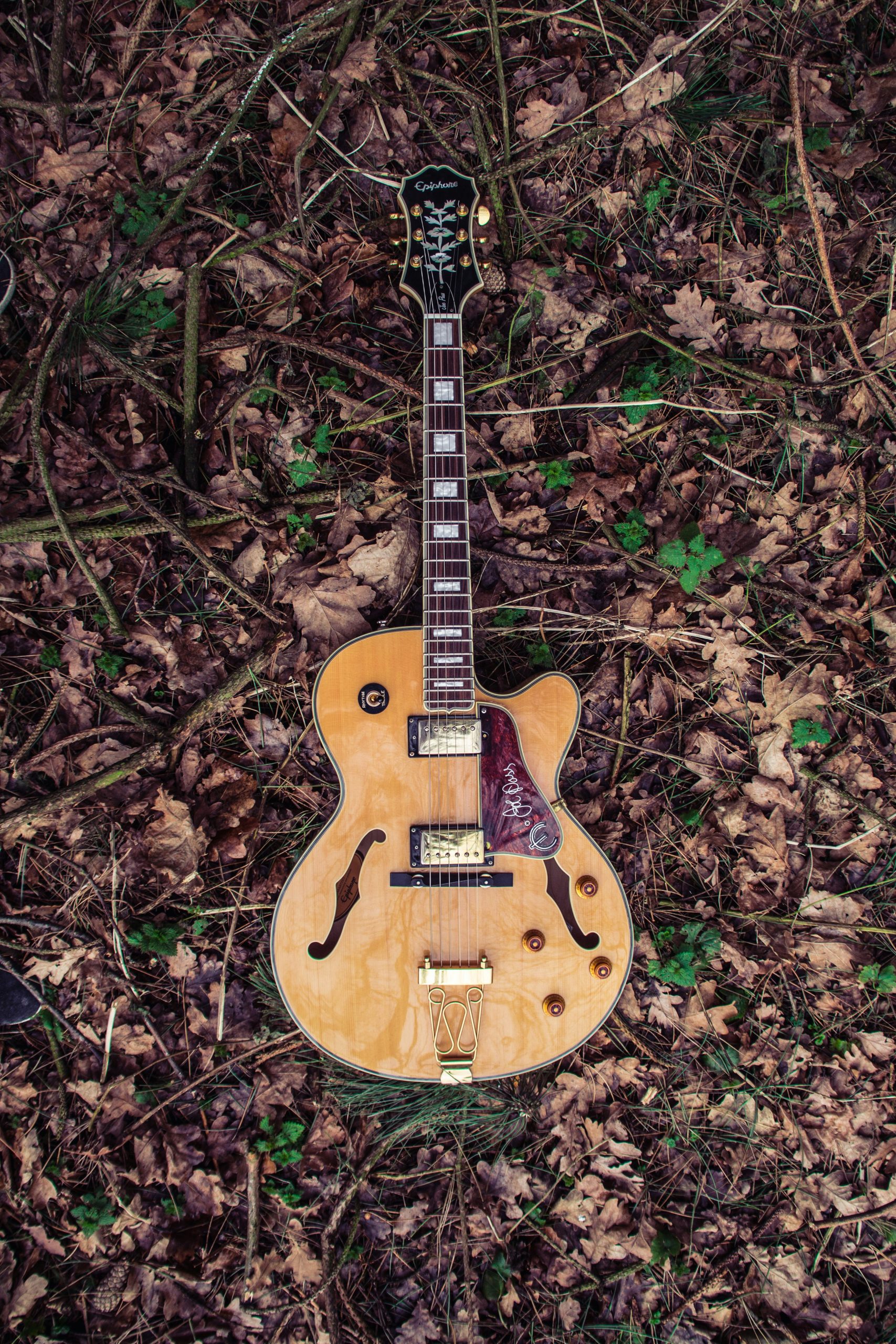
Learning Materials and Resources
Books and eBooks
Books remain a staple for learning guitar, especially for theoretical grounding and structured lesson plans. Titles like “Hal Leonard Guitar Method” and “Guitar For Dummies” offer comprehensive guides covering a range of skills.
Online Platforms and Courses
Websites such as JustinGuitar, Fender Play, and Yousician offer step-by-step courses designed for self-paced learning. These platforms often include video tutorials, interactive exercises, and progress tracking features.
Mobile Apps
Apps like GuitarTuna, Ultimate Guitar, and Guitar Pro are invaluable for tuning, chord libraries, and tablature. These apps can supplement your learning by enabling you to practice and reference material conveniently.
YouTube Channels
YouTube is a goldmine of free instructional videos. Channels like Marty Music, GuitarJamz, and Paul Davids provide lessons on a wide array of topics, from basic chords to advanced techniques.
Developing a Practice Routine
Importance of Structure
A well-defined practice routine can maximize your learning efficiency. Consistency is key, and regular practice sessions, even if they are short, contribute more to progress than sporadic, long sessions.
Daily Practice Plan
Create a daily practice plan that includes warm-ups, skill-building exercises, song practice, and theory study. Here’s an example of a balanced one-hour daily routine:
| Time | Activity |
|---|---|
| 10 minutes | Warm-up (finger exercises) |
| 20 minutes | Chord practice |
| 15 minutes | Song practice |
| 10 minutes | Music theory study |
| 5 minutes | Cool-down (review and relax) |
Tracking Progress
Keep a journal to track your practice sessions and progress. Log what you worked on, what challenges you faced, and what you aim to achieve next. This habit can offer insights and keep you motivated as you see tangible improvement over time.
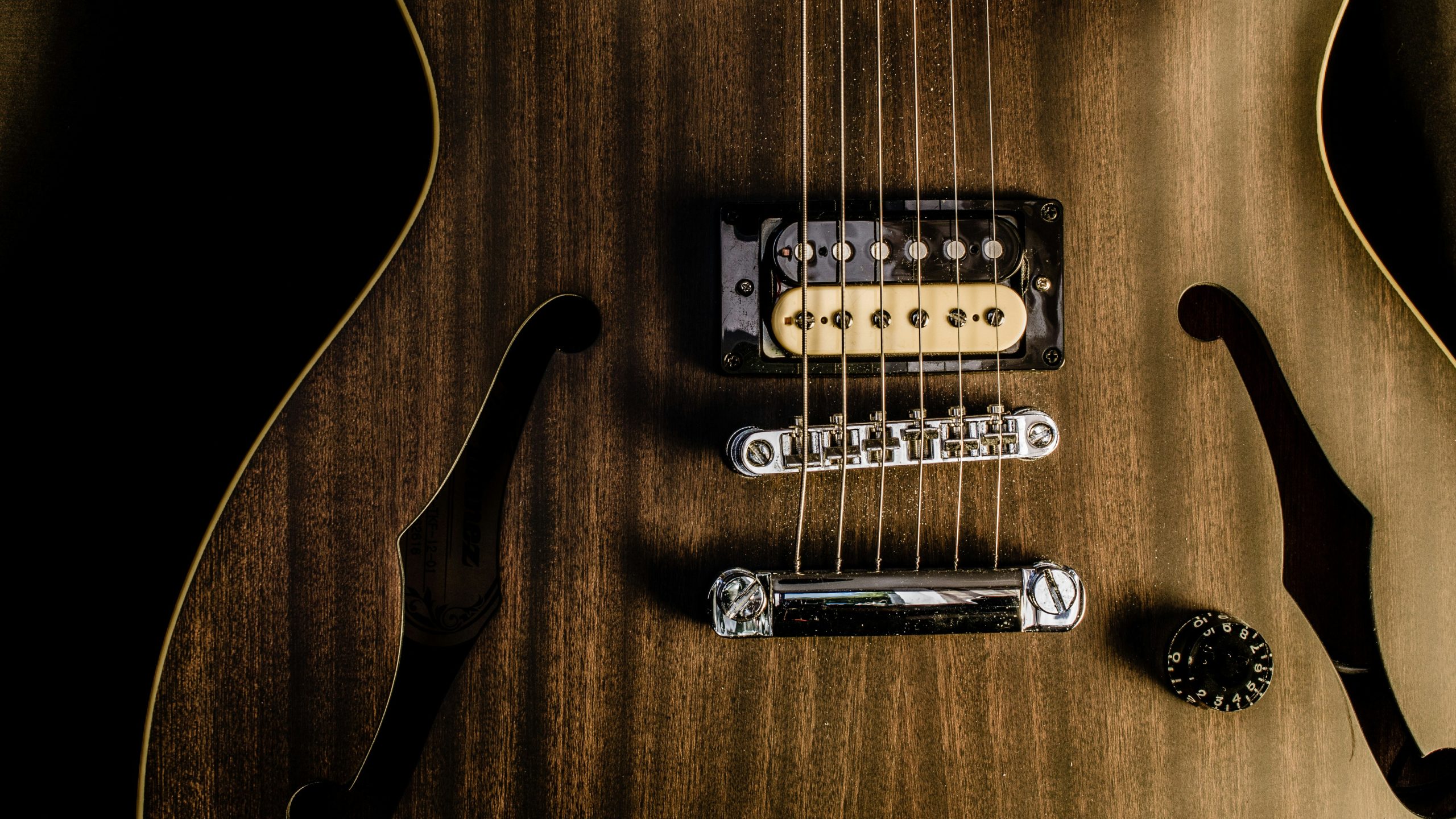
Understanding Basic Music Theory
Importance of Theory
Though learning by ear is beneficial, a foundational understanding of music theory can significantly enhance your abilities. Theory helps you understand the construction of chords, scales, and how music is composed and organized.
Essential Concepts
Chords and Scales
Begin by learning major and minor chords, and their respective scales. Understanding the relationship between chords and scales can help you in improvisation and composition. The table below outlines some fundamental chords and their scales:
| Chord | Scale |
|---|---|
| C Major | C, D, E, F, G, A, B |
| G Major | G, A, B, C, D, E, F# |
| A Minor | A, B, C, D, E, F, G |
| E Minor | E, F#, G, A, B, C, D |
Time Signatures and Rhythms
Knowing how different time signatures affect the rhythm of the song is crucial. Most songs you encounter early on will be in 4/4 time, but understanding other time signatures like 3/4 and 6/8 broadens your rhythmic skill set.
Harmonic Progression
Understanding harmonic progressions, such as the I-IV-V (1-4-5) progression, will help you recognize patterns in the songs you play, making it easier to learn new music quickly.
Techniques and Exercises
Finger Exercises
Finger exercises are essential for developing agility, strength, and coordination. The “1234” exercise, where you practice fretting each finger in sequence on each string, can be highly beneficial.
Strumming Patterns
Mastering various strumming patterns can significantly enhance your playstyle. Start with basic downstrokes and upstrokes, and gradually incorporate more complex patterns like syncopated rhythms.
Picking Techniques
Alternate picking and fingerpicking are two fundamental picking techniques. Alternate picking involves using a pick to alternately downstroke and upstroke. Fingerpicking uses the thumb and fingers to pluck the strings, allowing for more intricate and melodic playing styles.
Barre Chords
Barre chords are more challenging but essential for advancing your play. Practice the E-shape and A-shape barre chords initially, as these are the most commonly used forms.
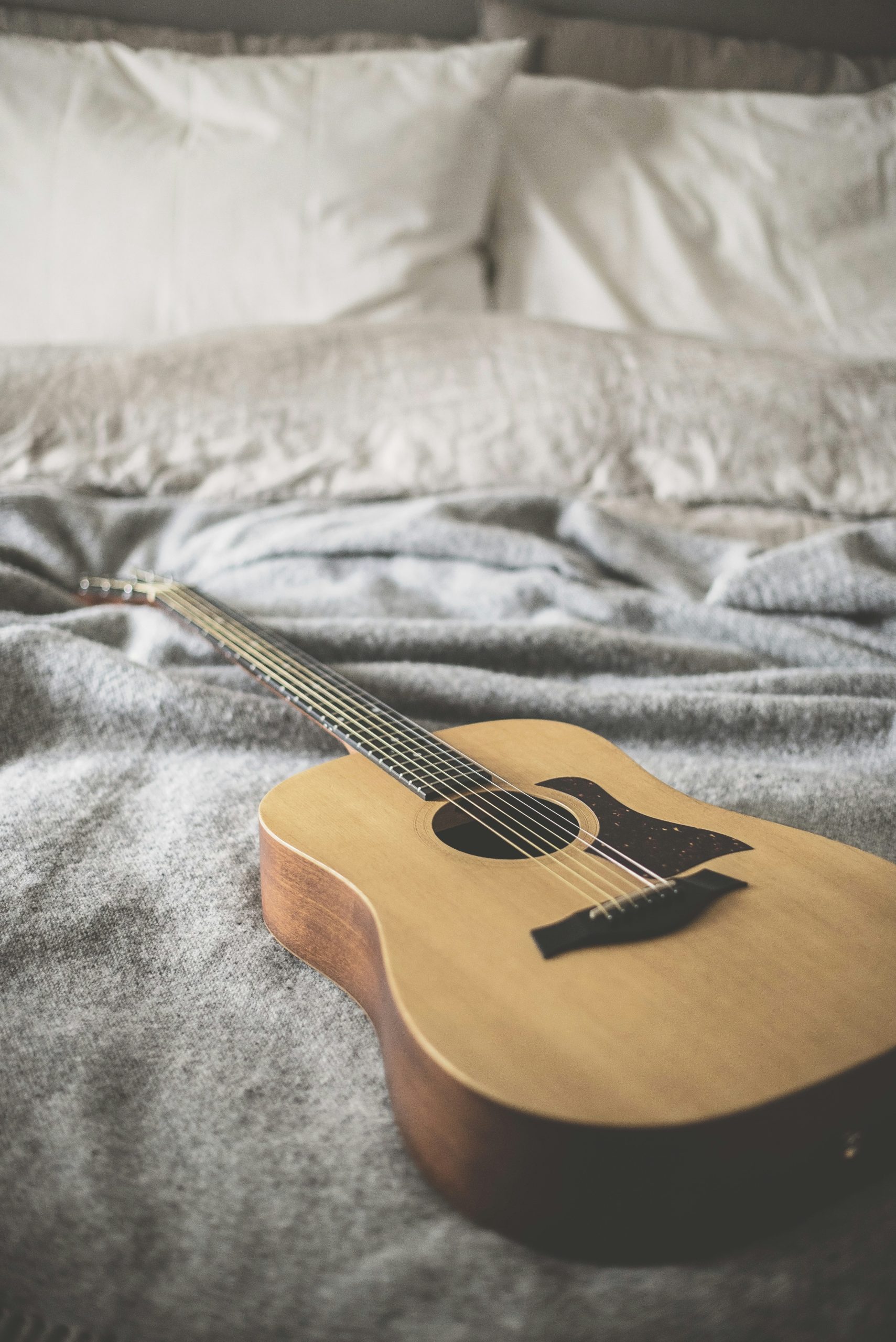
Developing Your Ear
Importance of Ear Training
Developing a good ear is critical for musicians. It helps you identify notes, chords, and intervals by ear, making it easier to learn and play songs.
Exercises
Interval Recognition
Practicing interval recognition can help you identify the distance between two notes. Start with simple intervals like major and minor seconds and gradually move to more complex ones like perfect fifths and octaves.
Chord Identification
Training your ear to recognize different chord types (major, minor, diminished, etc.) will make it easier to play music by ear.
Transcribing Music
One of the best ways to develop your ear is by transcribing music. Pick a simple song and try to figure out the chords and melody by listening to it without any visual aid.
Utilizing Online Communities
Forums and Social Media
Online forums like Reddit’s r/guitar, and social media groups can provide support, advice, and feedback. Engaging with a community can keep you motivated and exposed to different playing styles and techniques.
Collaboration Platforms
Websites like Kompoz and BandLab allow for online collaboration with other musicians. Collaborating can offer fresh perspectives and accelerate your learning.
Attending Virtual Open Mics
Participate in virtual open mics to share your progress and get constructive feedback from other players. This can help you gain confidence and stage presence.
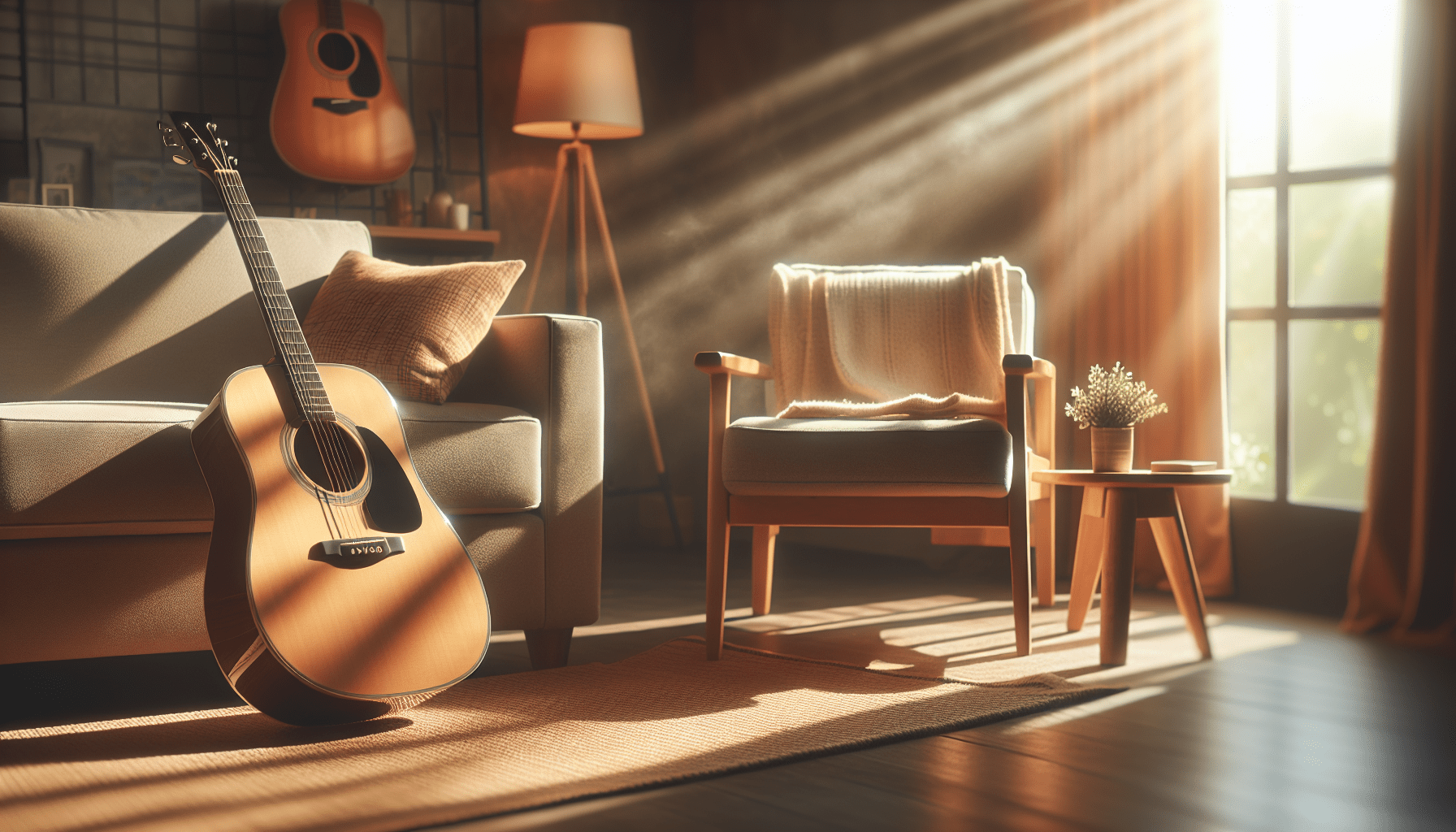
Advanced Techniques and Songs
Fingerstyle Techniques
Once comfortable with basic fingerpicking, you can explore advanced fingerstyle techniques, often used in classical and folk music. Techniques like Travis picking can add complexity and beauty to your playing.
Soloing and Improvisation
Learning to solo and improvise is a significant milestone in guitar playing. Start with pentatonic scales and basic blue licks, then gradually incorporate more advanced scales and techniques.
Complex Songs
Tackling more complex songs can provide a substantial challenge and sense of accomplishment. Begin with slightly more advanced pieces and progress to even more difficult repertoire over time.
Challenges and How to Overcome Them
Self-Motivation
Staying motivated can be challenging, particularly without a teacher to provide encouragement and accountability. Set milestones and reward yourself for achieving goals to keep morale high.
Technical Hurdles
Technical issues like proper hand positioning or string muting can be daunting. Utilize online tutorials and communities to seek advice and solutions.
Keeping Consistent
Life’s responsibilities can sometimes interfere with your practice routine. Try to allocate a fixed, non-negotiable time for guitar practice each day. Even a short, 10-minute session can keep you on track.
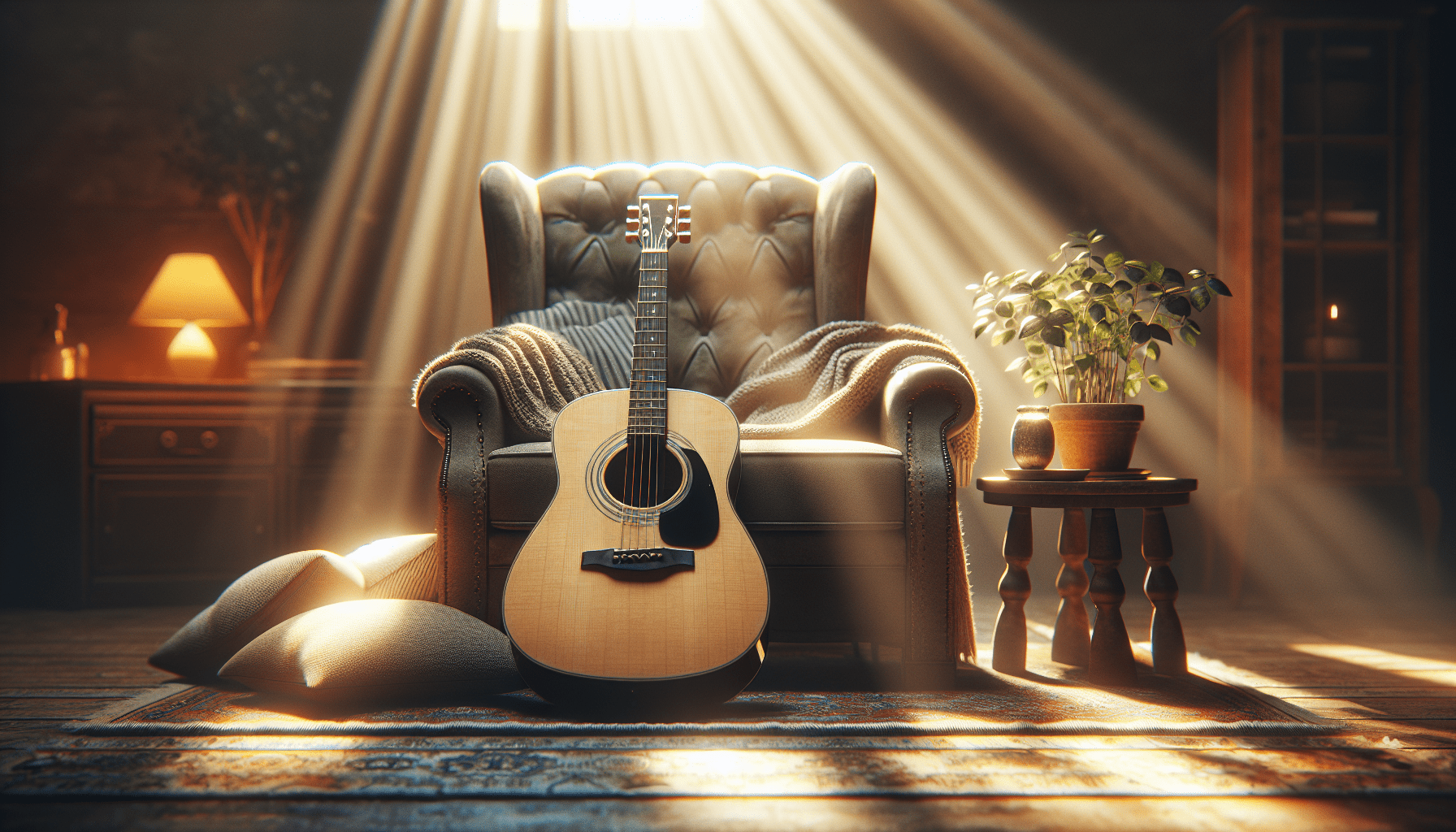
Evaluating Your Progress
Recording Yourself
Regularly recording your practice sessions and performances allows you to objectively evaluate your progress. Listening back can reveal areas that need improvement and confirm what is working well.
Self-Evaluation Checklists
Utilize checklists to assess various aspects of your playing, from technical skill to musicality. Self-evaluation helps you to maintain an objective view of your development.
Seeking External Feedback
Occasionally seeking feedback from more experienced players or online communities can provide valuable insights into your progress and highlight areas you might have overlooked.
Conclusion
Learning guitar without a teacher is an achievable and rewarding endeavor if approached with structure, discipline, and the right resources. From setting clear goals, choosing the right instrument, understanding music theory, practicing effectively, to utilizing online communities, every step you take builds towards a more self-sufficient and skilled musician. Embrace the journey, consistently challenge yourself, and remember that each string strummed and chord played brings you closer to mastering the guitar.
Hello, I’m an author for My Guitar Advisor. I love writing about and playing guitar, mainly fingerstyle but dabble into all genres. I hope you enjoy my writing and reviews.
